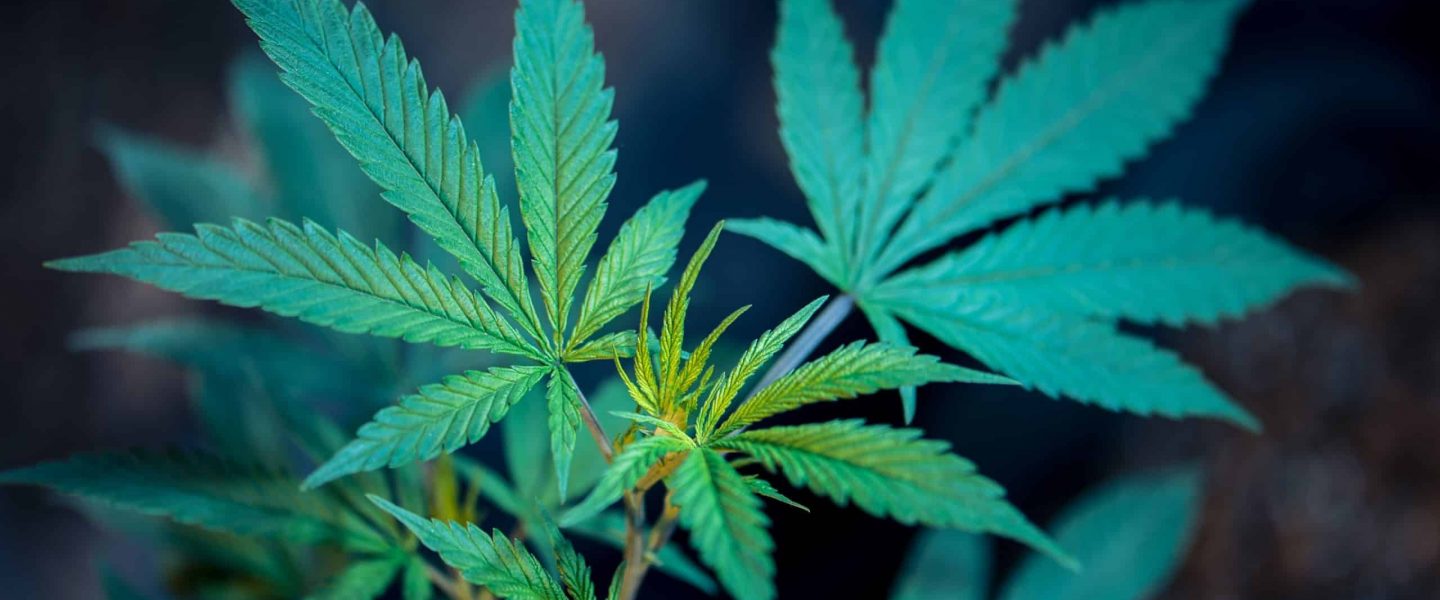
Marijuana Activists Agree That Marijuana Should Be Legal, But From There Things Get Hazy
Since the very beginning of marijuana prohibition, there have been people fighting for the re-legalization of marijuana. Obviously some times there were more people fighting for marijuana legalization than others. Recently, there has been a surge in support for marijuana legalization, with a record amount of polled Americans saying they favor marijuana legalization. The 2010 Election of course marked the first time a State voted on marijuana (California Proposition 19). While California Proposition 19 failed at the ballot box, it succeeded at starting the conversation in America at a whole new level.
Other marijuana legalization efforts will no doubt build on the best parts of Proposition 19, while trying to avoid the areas of the proposition that contributed to it’s defeat. As anyone that followed the proposition knows, some of the biggest opponents were people that claimed they support marijuana legalization in general, but did not like the version they saw at the ballot box. In an article titled, ‘WHY PRO-POT ACTIVISTS OPPOSE PROP. 19: 19 REASONS TO VOTE KNOW (sic),’ the author put out the following reasons they were not supporting the proposition even though they are a self described stoner:
“Simply put, the Regulate, Control and Tax Cannabis Initiative does not reflect most people’s ideas of what legalization would be. The media often incorrectly reports that this initiative calls for “full legalization” of marijuana. It does not. In fact, it reverses many of the freedoms marijuana consumers currently enjoy, pushes growers out of the commercial market, paves the way for the corporatization of cannabis, and creates new prohibitions where there are none now.” As the article notes, even the legendary Jack Herer opposed Proposition 19. The author goes on to list their 19 reasons, and in the interest of reducing scrolling, I won’t post them here. I encourage readers to click on the link above and check it out if they want to see more reasons why recreational marijuana users opposed California Proposition 19.
The medical marijuana community was one of the most vocal opponents of California Proposition 19. Dennis Peron, author of California Proposition 215 which legalized medical marijuana in California, stated the following, “People think it’s legalization, it’s being sold as legalization–even though it’s the opposite of legalization.” California has long had some of the highest medical marijuana cultivation and possession limits (unlimited if you consider case law) in the nation, and many in the medical marijuana community feared that their protections would be jeopardized if California Proposition 19 passed. Despite later amendments to the Proposition, most patients just couldn’t get on board. Here is another excerpt from the anti-Prop 19 article I linked to earlier:
 “Myth #10: Medical marijuana patients would be exempt from the initiative.
“Myth #10: Medical marijuana patients would be exempt from the initiative.
Fact: This is not exactly true. While amendments were made ostensibly to prevent the initiative from affecting current medical marijuana law, a careful reading of the initiative reveals that this is not, in fact, the case. Certain medical marijuana laws are exempt from the prohibitions the initiative would enact, while others are glaringly absent.
Cultivation is one such law that is noticeably non-exempt. In spite of the fact that the tax cannabis Web site says otherwise, the only medical marijuana exemptions that the Regulate, Control and Tax Cannabis Initiative actually makes are with regard to possession, consumption and purchase limits, which only ensure that patients would still be allowed to buy medicine at dispensaries. The word “cultivate” is conspicuously absent. Whereas today a person with a doctor’s recommendation has the right to grow up to an unlimited number of plants, the initiative would drastically reduce that number to whatever can fit in a 5’x5’ footprint (around 3-6 plants–per property, not per person). This will force many patients to resort to buying instead of growing their own medicine, because of the inconvenience caused by producing multiple grows a year rather than growing a year’s supply of medicine at one time, as many patients currently do outdoors. And growing indoors–which typically requires special grow lights, an increase in hydro use, and a lot of time and attention–is a comparatively expensive endeavor.
The initiative would further impact medical marijuana patients by banning medicating in the privacy of their own homes if there are minors present, as well as in public (currently perfectly legal)–an invaluable liberty to those with painful diseases who would otherwise have to suffer until they got home to relieve their pain.
Finally, the medical marijuana laws that are exempted from this initiative apparently only apply to cities. For medical marijuana patients who live in an area that has county or local government jurisdiction, according to a strict reading of the initiative, medical marijuana laws are not exempt.”
With marijuana legalization efforts underway across the country (it seems like more pop up every week!), some marijuana legalization efforts are experiencing similar resistance that Proposition 19 faced in 2010. The highest profile effort is of course Washington State’s I-502. Just as the medical marijuana community opposed California’s Proposition 19, so is the medical marijuana community opposing I-502 in Washington State. The two big hang ups are a DUII provision in the amendment, and potential interference with medical marijuana patient’s right to grow their own marijuana.
 I wrote an article titled, ‘Will Infighting Doom The Marijuana Movement‘ which created a lot of discussion about I-502. I intended the article to be a ‘hey let’s talk about this across the nation’ post, but somehow it turned into a pro/anti I-502 article, which I am fine with. Hopefully readers realize that I am trying to facilitate discussion, not put down other’s views or say that I’m right and others are wrong. In fact, I have stated over and over that I would rather be wrong and facilitate discussion than be right and have the conversation go nowhere. One of my biggest critics is the always fiery Steve Sarich. I love Steve’s passion, and hopefully he realizes that I am often playing the devil’s advocate to get discussion going. Of course, sometimes I disagree with him as well, but no one agrees on everything all of the time. Steve placed the following comment on the infighting article, which I think really hammers home the feeling of the medical marijuana community in Washington State in regards to I-502. It was so good that I copied the whole thing below:
I wrote an article titled, ‘Will Infighting Doom The Marijuana Movement‘ which created a lot of discussion about I-502. I intended the article to be a ‘hey let’s talk about this across the nation’ post, but somehow it turned into a pro/anti I-502 article, which I am fine with. Hopefully readers realize that I am trying to facilitate discussion, not put down other’s views or say that I’m right and others are wrong. In fact, I have stated over and over that I would rather be wrong and facilitate discussion than be right and have the conversation go nowhere. One of my biggest critics is the always fiery Steve Sarich. I love Steve’s passion, and hopefully he realizes that I am often playing the devil’s advocate to get discussion going. Of course, sometimes I disagree with him as well, but no one agrees on everything all of the time. Steve placed the following comment on the infighting article, which I think really hammers home the feeling of the medical marijuana community in Washington State in regards to I-502. It was so good that I copied the whole thing below:
“I guess the answer to your question is “NO”…..we can’t all just get along. I-502 here in Washington is supposedly a “legalization” bill. Unlike you, I will not accept “reform” or “legalization” unless you can clearly define these terms for me. According to your theory of incrementationalism, what should we be willing to give up in order to get this “incremental” change? There’s where the dividing line is drawn.
I-502 has two key components that are non-starters for patients and should be non-starters for everyone, but that’s apparently not the case. There are still people that think like you do….legalization at ANY cost.
I-502 would impose a DUI limit of 5 nanograms per millilter of THC in blood. I’m a legal patient and I have not medicated at all today. Right now I would test at 5 ng/ml or likely higher if I were pulled over. I’m fairly certain that I’m not intoxicated or impaired in any way. I can provide you with all of the testing that’s been done over the last 25 years that ALL concluded that you can’t determine intoxication by taking my blood. These include studies funded by the National Institute of Drug Abuse and the National Highway Traffic Safety Commission.
If this measure passes, every medical marijuana patient in Washington could be charged with a DUI every time they got behind the wheel, whether they’d medicated that day or not. Getting caught with an ounce of pot in Washington is a minor offense. In Seattle, they won’t even charge you. Getting charged with a DUI, on the other hand, will cost you (on average) $10,000 in attorney fees, fines and court costs. And under this law, you’ll have no defense to the charges…even if you weren’t impaired whatsoever. It gets far worse for the second and third offenses.
The authors of the bill admit that there probably isn’t any scientific evidence to back up this DUI limit, but they’ve said that their polling indicated that they needed to add this to the bill to get enough votes to get it passed. (Actually they should have taken the backlash from medical marijuana patients into account in their polling as well….they might have rethought their position).
How many rights are you willing to give up under your theory of incrementalism? Are you willing to go to jail for DUI whenever you drive….even though you aren’t impaired in any way? I’m pretty sure that the first time this happened to you, you’d be rethinking the wisdom of “legalization at any cost”. I kinda like to think ahead and I’m pretty sure I don’t want to see multiple DUI’s in my future.
Oh…..and we aren’t finished!
The “legal pot” will be sold in stores licensed by State Liquor Control Board. Using the tax scheduling taken directly from the bill, I calculated that if the grower was paid $150 per ounce, the retail price for the “legal pot” could easily be $700 an ounce….or more. The folks at New Approach Washington (the sponsors) did not challenge me on this calculation…they can’t. (and don’t even think about growing your own…that’s clearly a felony in this bill)
Sooooo….are you ready for $700 per ounce pot? Is that your idea of “incremental legalization”? I certainly know that patients could never afford to pay that.
Are you beginning to get the picture? Millions of people love coffee, but if Starbuck came out with a new frozen coffee drink called “Fecal Frappe”, even the most serious coffee lovers would shop elsewhere.
The sponsors of this bill (NAW) are pathological liars. The Colorado medical cannabis program is run by the State Department of Revenue. The dispensaries are taxed to the hilt and watched like hawks. They reported tax revenues of $23 million dollars last year. The NAW (depending on the day) is claiming that I-502 will bring the state between $210-$300 million a year in tax revenues….from a state with roughly the same population as Colorado! They have refused numerous requests to show us how they came up with these incredible figures. But soon the press will start asking this rather embarrassing question.
So there you have your answer. And “NO” we can’t just “unite” on this issue any more than we could drink a Fecal Frappe. We can’t just take the position that we will accept legalization “at any cost”. Be careful what you ask for….you might just get it. And the cost on this measure is certainly not one that logical people would agree to pay.”
The ‘Fecal Frappe’ lol. As always seems to happen when communication is text only, I can never fully convey how I feel and respond adequately. So I figured the best way I can respond to all my critics in the most efficient way possible would be to state my position to clear the air. I’m not saying yes to any initiative or proposition, but I’m also not necessarily saying no. What I’m saying is there should be a cost benefit analysis done to see if the proposed initiative or proposition makes the marijuana movement better as a whole, with as little impact to current medical marijuana programs as possible.
 I am a medical marijuana patient. I have been a medical marijuana patient in Oregon since 2006. When I speak out in support of marijuana legalization, I am speaking both as a recreational user and a medical user. Hopefully when people accuse me of trying to ‘win your goal for legalization for everyone on the backs of patients‘ they realize that I am a medical marijuana patient myself, and I am ready to help carry the load on my back. I’m not saying I’m willing to give up all of my protections as a medical marijuana patient (which are substantial in Oregon), but I am willing to give up some of them if it brings about meaningful marijuana policy reform for the masses. Once again, I’M NOT SAYING THAT ONE, OR ANY, CURRENT EFFORT MEETS THAT CRITERIA. But I am saying that it shouldn’t be an all or nothing thing. Let’s take a sensible look and if at the end things don’t seem sufficient, then by all means vote no.
I am a medical marijuana patient. I have been a medical marijuana patient in Oregon since 2006. When I speak out in support of marijuana legalization, I am speaking both as a recreational user and a medical user. Hopefully when people accuse me of trying to ‘win your goal for legalization for everyone on the backs of patients‘ they realize that I am a medical marijuana patient myself, and I am ready to help carry the load on my back. I’m not saying I’m willing to give up all of my protections as a medical marijuana patient (which are substantial in Oregon), but I am willing to give up some of them if it brings about meaningful marijuana policy reform for the masses. Once again, I’M NOT SAYING THAT ONE, OR ANY, CURRENT EFFORT MEETS THAT CRITERIA. But I am saying that it shouldn’t be an all or nothing thing. Let’s take a sensible look and if at the end things don’t seem sufficient, then by all means vote no.
One thing that is painfully obvious is that there seems to not be enough input from all sides of the marijuana movement when drafting up proposed initiatives and propositions. This has led to accusations that marijuana legalization initiatives are nothing more than people’s attempts at monopolizing the marijuana industry. The initiatives and propositions are written in a way that the rules would greatly benefit the authors, so I can definitely see why those accusations are presented. I think there needs to be more input, but how much is enough?
Playing the devil’s advocate role, I can’t help but propose the following question, ‘if the medical marijuana community and recreational marijuana users sat down to come up with a legalization initiative, would we ever get a final draft?’ There’s a great conversation going on another article that I wrote dealing with that topic called, ‘Should Medical Cannabis Patients Fight For Recreational Marijuana Legalization?‘ In the comments section, you will see how medical patients don’t want to give up their protections (not saying they have to, just saying I’d be open to it personally), and the recreational users feel cheated for voting for medical marijuana, just to be left out thereafter.
So what do you think America? What should marijuana legalization in America look like? Here are some, but not all, issues that I would like to see specifically addressed in a marijuana legalization initiative. Please add your own ideas in the comments, and as always, all viewpoints are welcomed:
Age Of Use
A lot of people are turned off by marijuana legalization initiatives because the legal age is 21 years old, not 18. There are also people out there that strongly feel there should be no age limit, although I always wonder if those are teenage Johnny Green’s out there lol. I know I was for no age limit when I was a teen! One thing that needs to be considered is what age do swing voters feel is an acceptable age to legally consume marijuana? The entire marijuana movement could be in agreement on an age, but if it’s too young for otherwise sympathetic voters that aren’t consumers, it might push them to the other side of the fence. I personally feel that if you are old enough to vote, you are old enough to legally consume marijuana responsibly. With that said, I’m not opposed to a 21 years old requirement, because after all, right now the age requirement is ‘if you are alive, marijuana is against the law.’ I know that’s not popular with those between 18-20, but you will get to 21 soon enough, and an age limit of 21 is better than the current alternative.
No Effect On Medical Marijuana Programs
As I stated above, I would personally be willing to give up some (but not all) legal protections as a medical marijuana patient if it meant legalization for all. However, we could sidestep the entire issue if there was clear, all encompassing language that exempted medical marijuana programs from any changes related to the legalization initiative. All encompassing is easier said than done, but I think if the recreational community worked hand in hand with guys like Steve Sarich, the adequate language could be created.
Regulated Like Alcohol, Pharm, Tobacco?
One of the ongoing debates within the greater marijuana legalization effort is regulating marijuana like alcohol, pharmaceuticals, tobacco, or none of the above. Obviously marijuana is completely different than all of them, which is why so many supporters get angry when initiatives try to regulate marijuana in a similar fashion. Something that people need to consider is if marijuana isn’t regulated by an agency that is already in place, it’s going to be a tougher sell to otherwise sympathetic voters that don’t consume marijuana. With that being said, if marijuana was legal it would generate so much money that it could easily pay for it’s own agency, if not the entire system. I don’t like marijuana being regulated like pharm or tobacco, because quite frankly I think that they can’t be trusted, and are largely responsible for the current state of the nation with their ability to buy politicians and further corrupt the system. I’m not a big fan of alcohol either, but I don’t despise them nearly as much as the other two. I think a cottage marijuana industry that resembles the micro-brew industry would be the best out of the three, but that would obviously not be as good as something specifically tailored to marijuana.
Who’s Allowed To Grow And How Much?
I think if marijuana is legal, everyone should be allowed to grow. I think the rest of the marijuana community is with me on that. However, how much should people be allowed to grow? One of the biggest sticking points with Prop 19 was that it limited cultivation to 5×5 ft areas, one per property, no matter how many people lived there. This was not enough for some people. Again, just as with the age thing, marijuana legalization supporters have to be willing to compromise to limits that otherwise sympathetic marijuana supporters that don’t consume would be comfortable with. Obviously, as stated above, medical marijuana should be unaffected in this area, and limits should stay at their current levels.
How Much Marijuana Can We Possess?
Another sticking point on Prop 19 was the possession limit, which many felt was too low. Sorry to be a broken record, but I have to point out again that there needs to be a balance that all potential ‘yes’ voters can feel comfortable with. People out there are calling for no limits in anyway, or a pound, etc. Do those people really think that a majority of a state’s voters will support such an extreme change? In my other articles I always point out that politics is incremental. Many assume that I prefer it that way, which I don’t necessarily, but it is what it is. If the marijuana community comes out and says that marijuana should be legal for personal use, and that personal use should be defined as unlimited, the conversation with most voters will end right there. What is an acceptable limit? I honestly have no idea and think that possession limits would need to have the most discussion. And once again, recreational possession limits shouldn’t have any effect on medical marijuana possession limits.
One of the biggest arguments against marijuana legalization is ‘what about all of those stoned drivers?’ While I personally feel that there wouldn’t be any increase in ‘stoned driving’ problems (backed up by recent studies), it’s very hard to convince otherwise sympathetic voters that don’t consume marijuana that things will be OK. I’m not sure if that’s why the DUII section was included in I-502 or not. A no tolerance stance is an easy sell to skeptical voters, but it doesn’t seem to be sound science to most people. Although, I must point out that in order to get your THC blood level, cops obviously have to extract blood, which they can do if they feel you are driving under the influence, regardless of medical marijuana card or not. It’s up to their prosecutorial discretion how far they want to take their investigation, and an overzealous cop is going to try to find a way to bust you if they want to, I-502/mmj card or not.
What Should The Tax Rate Be?
One of the biggest reasons that marijuana legalization is gaining traction among American citizens is it’s tax generating potential. I have been very vocal since we started this blog that I really hope that marijuana legalization isn’t taxed to death before it gets a chance to live. What is a fair tax rate for marijuana? Obviously the tax needs to be high enough to create economic benefits for society, but if it’s too high, marijuana legalization will never reach it’s full potential because people will continue to buy marijuana on the black market because it’s cheaper. What the fair tax rate is, I’m not sure. Along with possession limits, this area of marijuana legalization will no doubt require much more discussion.
So once again I pose the question to readers, ‘what should marijuana legalization look like in America?’ I anxiously await your responses!



























